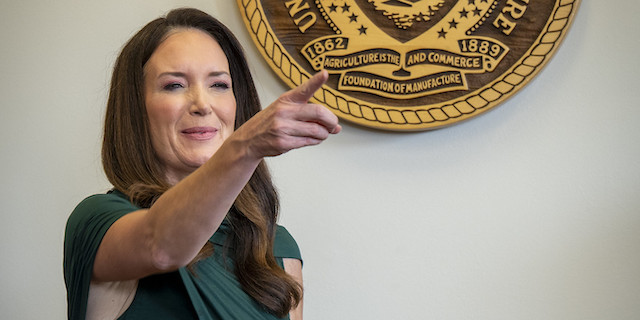Washington agriculture warns bills would make labor scarce
Published 9:45 am Tuesday, January 19, 2021

- Steve Brown/Capital Press Washington Senate Democrats are considering extending more paid leave benefits to farmworkers and others defined as 'frontline employees' in a public health emergency.
OLYMPIA — The Washington Farm Bureau and other business groups warned Monday that two bills sponsored by Senate Democrats would create labor shortages and upset the state’s paid leave program.
Agricultural workers and other “frontline employees” could get more sick and family leave during a public health emergency under Senate Bill 5115.
Under one provision, workers in companies with 50 or more employees could take up to 12 weeks off and collect up to $10,000 if their child’s day care closed or school was not holding in-person classes.
Senate Bill 5097 would expand the scope of family leave. Currently, workers can take paid time off to care for children, grandchildren, parents, grandparents, siblings and a spouse.
The bill would allow workers to take family leave to care for anyone to whom they had an “affinity.”
Supporters said the bills respond to the pandemic, letting workers quarantine, recover and take care of others.
Food Northwest lobbyist Dan Coyne told the Senate Labor, Commerce and Tribal Affairs Committee there are better ways to protect workers.
“Mainly, the state of Washington needs to up its game in making COVID vaccine available to all frontline workers as quickly as possible,” said Coyne, who represents food processors.
“There is mass confusion among employers that I work with about how to responsibly get our employees in line for vaccines,” he said.
The Farm Bureau called the two bills “extremely bad.” Associate director of government relations Breanne Elsey said they would worsen an existing labor shortage and leave crops in fields.
“There’s no ability to postpone (harvests) until your crew returns from three months of leave,” she said.
SB 5115 would apply to a broad-range of workers, including nurses, janitors, firefighters, bus drivers, teachers and retail clerks, as well as farm and food processing workers. It has union support.
The bill has several major provisions:
• A frontline worker who tests positive for COVID-19 would be assumed to have been infected at work and would be eligible for workers compensation benefits.
• Employers would have to provide personal protective equipment.
• Employees who publicly complain about workplace conditions would be shielded from retaliation. A whistleblower could get up to 40% of a fine levied by the state.
• A worker would be eligible for paid leave after earning $1,000. Currently, a employee must work for 820 hours to be eligible, or about 16 weeks of paying into the system.
Employers would get a tax credit to offset the higher benefits. Business groups warned that eventually someone will have to pay.
• Frontline workers who are paid at or near minimum wage would get a 25% pay raise, increasing the minimum wage to $17.11.
• Employers must report outbreaks of the disease in their workforce within 24 hours. At the same time, workers are not required to report any medical condition or diagnosis to their employer.
Farm Bureau director of safety and claims Richard Clyne said farms started last spring to keep their essential employees healthy and working.
“Unfortunately, it would mean that all of their efforts at safety are being met with a slap in the face,” Clyne said.






